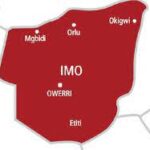By Chesa Chesa
The latest military coups in Africa have thrown up dictators that are using adhoc regional military pacts and alliances to thwart democracy and strengthen their hold on power, say researchers at renowned policy think-tank, Nextier.
The researchers made specific reference to the ‘G5 Sahel’ which birthed the Alliance of Sahel States, a recent military pact signed on 16th September 2023 by three leaders of G5 Sahel who came to power through coups in West African nations of Mali, Burkina Faso and Niger Republic.
This Alliance of Sahel States is a collective defence and mutual assistance framework by the three states to help each other against possible threats of armed rebellion or external aggression.
But a Nextier report authored by Dr. Chukwuma Okoli, an Associate Consultant at Nextier and a Lecturer at the Political Science Department at Nnamdi Azikiwe University, Awka, Nigeria; as well as Dr. Ndu Nwokolo, a Partner at Nextier and an Honorary Fellow at the School of Government at the University of Birmingham, UK, concluded that the military pacts like that have shown loopholes for abuse.
According to them, the experience of the G5 Sahel countries shows that the use of ad hoc military coalition for counter-insurgency could be exploited to subvert democracy.
They therefore warned that democracy in the subregion could further be undermined if such military coalitions receive international support or endorsement.
“The G5 Sahel was established as an ad hoc coalition to bring stability to the region. Unfortunately, some of the authoritarian leaders exploited the coalition to further self-serving regime interest by prioritising a military approach to counter-insurgency.
“The recent military pact signed by three leaders of G5 Sahel who came to power through coups should be seen as an attempt to unite against democracy. Such a coalition may narrow the possibilities of restoring democracy if it receives unconditional support from the international community”, their report stated.
The scholars recalled that this latest pact adds to the G5 Sahel Joint Force (FC-G5S) launched in February 2017 as the military component of the G5 Sahel – a regional body established in 2014 by Burkina Faso, Mali, Mauritania, Niger and Chad. The establishment of the G5 Sahel by the five Sahelian states was borne out of the motivation to bring stability to the Sahel through an ad hoc coalition to address the security and development challenges facing member countries.
Okoli and Nwokolo observed that democracy has been dealt a great blow as coups and counter-coups have recently spread like wildfire across countries of the G5 Sahel.
“The latest military pact entered into by three members of the G5 Sahel is worrisome because, instead of serving as a bulwark against terror, the military alliance may be a coalition to counter the restoration of democracy in the three countries”, they stated.
Another key observation is that except for Mauritania, all other member states of the G5 Sahel are currently under military rule, the report said.
“Although one of the objectives of the G5 Sahel is to support democracy and good governance, the group sidestepped the developmental needs of the people and prioritised a military approach to counter-insurgency”, they stated.
According to the researchers, “the use of ad hoc military coalition to militarise the region in the name of counter-insurgency enabled increased contact and bonding among military personnel from the G5 Sahel countries. This increased contact among the military personnel of the coalition may have contributed to the contagious coups which spread across the region.
“The international community is also implicated in the subversion of democracy witnessed in the G5 Sahel countries. By ignoring adherence to democratic principles once security issues are brought to the front burner, the international community unwittingly aided authoritarian regimes to remain in power and subvert democracy.”
To check the trend, Okoli and Nwokolo recommended that “the international community, particularly regional organisations, should make respect for democratic principles a condition to be met by ad hoc coalitions seeking support for counter-insurgency initiatives.
“Ad hoc coalitions fighting insurgency must make governance reforms and human development as cardinal components of their counter-insurgency framework.
“There is a need for an independent team of experts to be deployed periodically to review the implementation of counter-insurgency frameworks and the concept of operations of ad hoc coalitions fighting insurgency.
“The international community must restrict regime use of international military bases in the G5 Sahel countries.”



